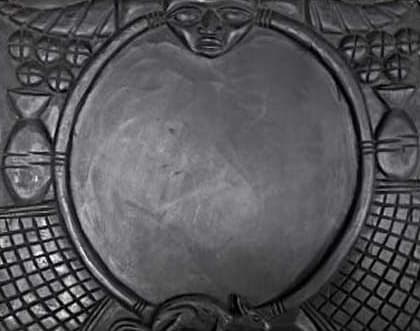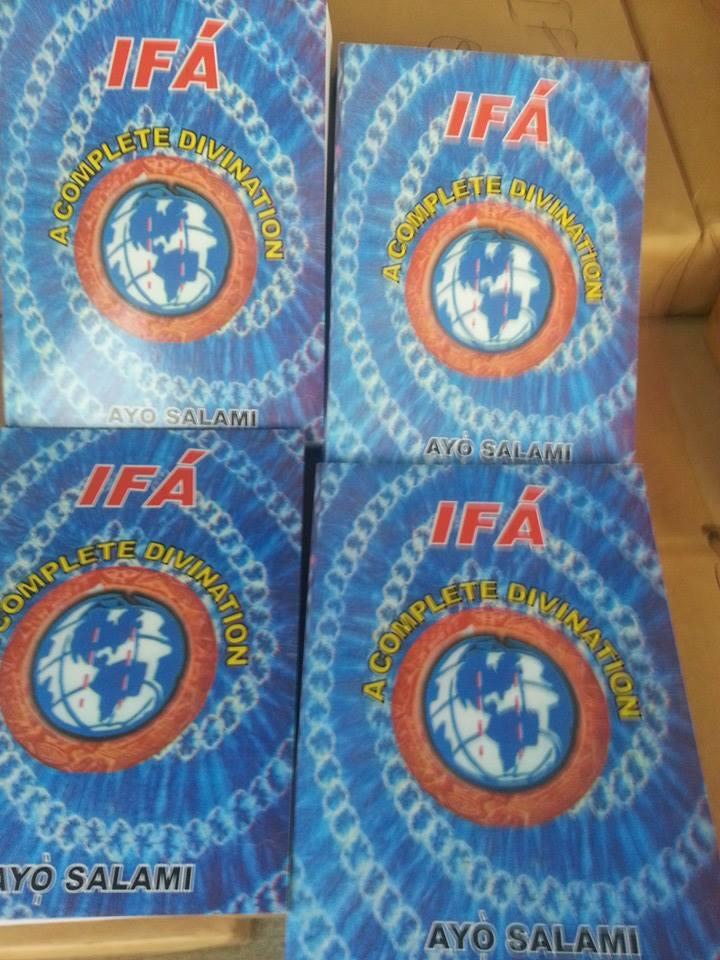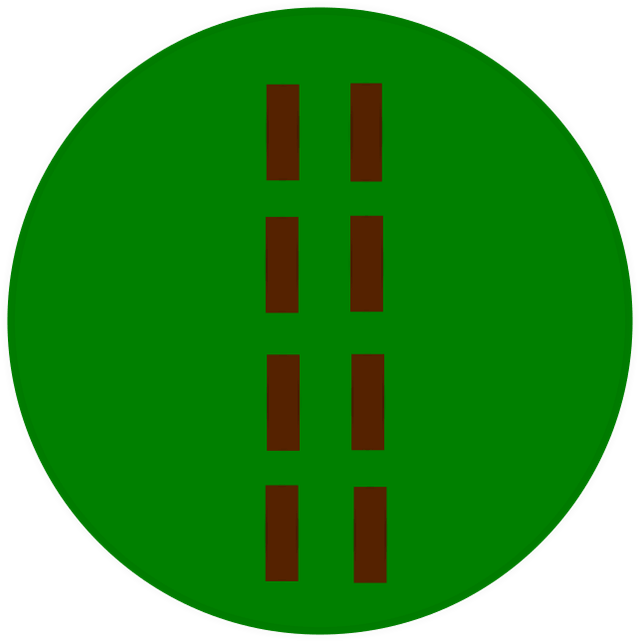Let's learn about theOdù IfáÈjìogbè

Alias :
Description :
This Odù Ifá is the 1st among the 16 major Odù or Ojú Odù (with both legs the same). It is called Èjìogbè, meaning that both of his legs are Ogbè.
Èjìogbè is the king of all the Odù Ifá. It represents the power of the light of the day and it is a very powerfull and beneficent Odù Ifá for whom it was cast for in terms of all kinds of blessings. As a sign of respect it is called Èjìogbè instead of Ogbè méjì.
When it comes out at first throw during a question, a second throw should never be made (as it happens with Ọ̀ràngún).
Verses ofÈjìogbè
Ọ̀rúnmìlà traveled to Ilé Ifẹ̀ (Odu Ifa Ejiogbe)
Explanations in English
Ifá sees good fortune for the person who is seeing this odù. Ifá advises this fellow to be calm in whatever he or she does, this person should not put hands in whatever is too difficult for him or her to get through.
Ifá promises to take this person to a great place but he must offer sacrifice. The verse goes like this...
Whoever forces his or her way through to wealth will not last,
Whoever rushes to become a war leader will not see tomorrow,
Ifá was cast as divination for Ọ̀rúnmìlà on his way to Ilé Ifẹ̀ (Historical capital of Yoruba land), when he was seeking for long life and all kinds of good fortunes (ire).
He was told to make sacrifice and complied.
Ifá says the person who sees this Odù in consultation is looking for success. So he or she needs to make sacrifice for Ifá, Orí and Èṣù in order to get all that he or she wants.
ÈJÌOGBÈ: Ifá worship
Original Stanza in YORÙBÁ
Traduction in ENGLISH
The vulture of Ìpàpó resembles snake through neck
Cast Ifá for Baba who chooses to eat rat with money
The vulture of Ìpàpó resembles snake through neck
Divine Ifá for Baba who chooses to eat fish with money
The vulture of Ìpàpó resembles snake through neck
Cast Ifá for Baba that take wine with his money
Worshipping Èjìogbè has become early morning routing
It is when we woke up that we met our king joyfully.
MORE EXPLANATION ON THIS VERSE
Taboos :
Òkín obtained the chief title instead of his elder brother (Odù Ifá Èjìogbè)
Original verse in Yorùbá
Àwọn ohun ẹbọ
English translation
Goodness enter the house abondantly,
Ifa was cast for Ologoshe who is the elder of Okin (peacock).
They told them to do ebo for chieftancy heritage of their father, because they belong to a royal family.
Their father then became old and finally died.
It is only Okin who offered sacrifice so he was the one whe was choosen as heir and obtained the chieftancy title of his father.
He then started to dance and rejoice and then praised his babalawo.
The babalawo then praised Ifa like this,
Oore lóore n wọ́ọ́ lé..."
Ebo items:
4 hens, 4 ...
Unlock full (soon available)Traduction in Spanish
Sacrifice items in Spanish
Ọ̀rúnmìlà bought Òhèrèhére as a slave (Odu Ifa Ejiogbe)
For whom this Ifá divination is dished out, such a person must not conspire against another, become a traitor or a hypocrite.
And in another sense, for whom this Ifá divination is dished out, such a person must not deceive another in a relationship. If it is a women, she must not deceive a man and vice versa.
The repercussion, to put it point-blank, is severe and in no time at all the deceit is discovered/unveiled.
Original Stanza in YORÙBÁ
Traduction of the stanza in English
The pestle is fashioned from Ìrókò tree
Ifá divination was dished out to Ọ̀rúnmìlà,
When he set forth to buy Òhèrèhére as a slave,
He was demanded to make sacrifice before he embarked on his journey.
Ọ̀rúnmìlà prepared and made sacrifice
Ọ̀rúnmìlà and Òhèrèhére ate the rat’s head
He and Òhèrèhére ate the fish’s head
He and Òhèrèhére ate the bird’s head.
He and Òhèrèhére ate the goat’s head
People from the different places came and ate the cow’s head
We do not grow svelte in Ifẹ̀
We do not old enough like elephant
We do not old enough like bufallo
No wealth we can compare with Okùn
No trap to compare with Ìyàmi rope
Okùn Ìyàmi dèrègbé is what we call Olókun
When measured length or breath,
Human’s hand surpasses his head
And the indigen surpasses the stranger in the town
My own will surpass is the sound of Àkọ̀ (animal)
The prosperities is to Babaláwo by this time
Very distance is the surpassing of palm leave to the tree
MORE EXPLANATION ABOUT THE VERSE
This Ifá divination brings out a warning that one must not deceive another fellow because of “progress’’.
It was Ọ̀rúnmìlà who went to cast the Ifá because he wanted to purchase a slave. He seeked to purchase a slave whose life who definitely work with his.
He was asked to make and prepare a sacrifice which he did. He however was warned never to make a promise he would never fulfill.
After making the sacrifices, Ọ̀rúnmìlà set for the OJÙGBÒRÒMEKÙN market in order to purchase the slave.
Ọ̀rúnmìlà bought the slave and took her home. Ọ̀rúnmìlà asked for her name and she answered that her name was ÒHÈRÈHÉRE.
Afterwards, Ọ̀rúnmìlà decided to marry ÒHÈRÈHÉRE soon, the period of the Ifá celebration was fast approaching and Ọ̀rúnmìlà was indeed in a trouble time.
This was the reason why Ọ̀rúnmìlà had to inform his wife, ÒHÈRÈHÉRE, that he had no penny to use celebrate the Ifá festival.
And Òhèrèhére replied that Ọ̀rúnmìlà should celebrate the festival with a rat but he had to give her its head.
After half of its whole body had been used as sacrifice, Òrúnmìlà gave the head to ÒHÈRÈHÉRE. And the celebration did go smoothly.
Soon another Ifá celebration set in and Ọ̀rúnmìlà complained to his wife about his state of penury. He complained he had nothing to offer as sacrifice.
ÒHÈRÈHÉRE assured Ọ̀rúnmìlà that in that year’s celebration of Ifá, Ọ̀rúnmìlà would be capable enough to buy fish and offer as a sacrifice. She therefore told Ọ̀rúnmìlà to always give her the head of everything he offered as sacrifice for the Ifá celebration.
And Ọ̀rúnmìlà made her a promise to always give her the head of whatever he were to use as sacrifice and that he would never refrain from doing so.
It was time for another Ifá celebration, and ÒHÈRÈHÉRE told Ọ̀rúnmìlà that it was ENLÁ ANIMAL he would be capable of offering as sacrifice this year. She assured Ọ̀rúnmìlà that he would be capable of buying it and that it would be done.
NOTE: In this Ifá divination, we are made to understand that we must not repay kindness with evil because ÒHÈRÈHÉRE was being kind, helpful and generous forwards Ọ̀rúnmìlà.
When ÒHÈRÈHÉRE prayed and assured Ọ̀rúnmìlà that it was a elephant he would offer as sacrifice for the Ifá celebration which was approaching, as the promise Ọ̀rúnmìlà had made to always give her the head of everything he offered as sacrifice, Ọ̀rúnmìlà was expected to give her the head of the elephant. But he declined from doing so, (thinking probably that it was too big a gift for her) despite her prayers. That was the reason why things was becoming shattered again.
Ọ̀rúnmìlà called on Ifá priest to help him profess lasting solutions to the problems he was facing / battling with.
The Ifá= priest did cast Èjiògbè again for Ọ̀rúnmìlà. They told him he had bitten a feeding finger – that he had repaid someone’s kindness with wrong doings.
And we must note that at that moment when Ọ̀rúnmìlà refused to fulfill his promise than give ÒHÈRÈHÉRE the elephant head, she had decided to leave his house at once and divorced him with anger.
And Ọ̀rúnmìlà refused to placate her before she went away.
It wasn’t long when she left that Ọ̀rúnmìlà’s life began to take a new told – a difficult one.
The priest duty informed Ọ̀rúnmìlà that he had to prepare a sacrifice so that ÒHÈRÈHÉRE could come back to him. They said after making the sacrifice he should come to worship Odù and he must prepare a sacrifice with civets for the witches (so that things would come to be normal again). Ọ̀rúnmìlà did all he was asked to do and eventually, ÒHÈRÈHÉRE came back to him and his life was turned for good again.
THE TABOOS BROUGHT OUT ON THIS VERSE
1. Betrayal
2 Warning about deceive or be deceived by man or woman















